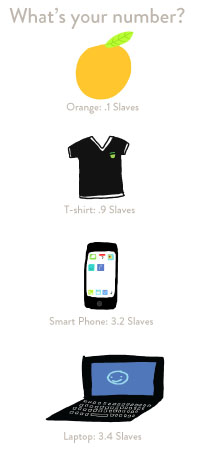
Imagine sitting in a rigid metal chair, the sides digging into your skin. The lights above you are so dim you have to squint; the air is damp and hot. The person next to you sits so close that even though your elbows are pinned to your sides; they touch. A dank smell penetrates your nostrils. Hunger gnaws at your stomach and your fingers ache from stitching the same white tag onto the same black sweater for hours on end. You want to get up—but you can’t, or you might get verbally, even physically abused—maybe not even paid.
This is the life of a sweatshop worker, the life of the person who made your sweatshirt—yes, the sweatshirt you might be wearing right now—did you ever think about that? Probably not.
This past summer, Hockaday’s new Community Service Director Day, along with 20 other selected teachers from across the nation, visited the Dominican Republic as a part of the Friends Beyond Borders program.
Day witnessed the poverty of many Dominican Republicans. She also observed the struggles of those working in sweatshops and said their working conditions were “awful:” thousands of workers crammed together work 14 hours a day with no breaks. They earn only about 70 cents an hour (the living wage is $2.83 an hour) making the clothes Americans buy at malls—and they are not allowed to buy the very clothes they make. At home, their children don’t go to school as they can’t afford uniforms, even though uniforms are only a couple dollars.
“They would rather feed their children,” Day said. “They’re barely making it by.”
When Day joined sweatshop workers for dinner, they told her of the physical and verbal abuse (although she did not witness any) and the economic troubles they dealt with. Workers varied: Day met a 22-year-old pregnant woman, a 40-year-old man and a grandmother.
“They’re very nice people who are married and want to live a life, but there aren’t many options, so this is what they’re doing,” Day said. “They told us they wanted a voice and that we have the buying power, so they want us to notice [their struggles] and maybe change it.”
However, there is hope: Alta Gracia.
Alta Gracia, a factory that makes apparel using humanized labor (they don’t use sweatshop labor) in the Dominican Republic, offers good working conditions and pays their workers a living wage, enough for the workers to actually survive and do other things besides just putting food on the table.
When Day visited Alta Gracia, she observed the huge contrast to other sweatshops. The factory was well-lit, there were fans to allow fresh air to flow through and ergonomic chairs with padded seats. She said that people were generally happy: their children go to school, they have medical insurance, have a house, work a regular workday—eight or nine hours with a one-hour lunch break—and make about $510 per month, which is about 338 percent more than minimum wage, according to Alta Gracia’s website.
When Day came to Hockaday this year, she told the Human Rights Committee about her trip to the Dominican Republic.
Moved by her story, the HRC decided to take action. Project managers juniors Michelle and Renee said HRC is planning on creating a shirt to sell in the bookstore using Alta Gracia.
“When I heard about the idea from [Michelle] I thought it was a great idea for a project because we can make such a direct impact on people’s lives just by doing something so small,” Renne said.
Shang hopes other clubs will be aware of Alta Gracia when buying shirts. “If they know that that’s an option, then we hope that in future years, more clubs will buy from Alta Gracia as well,” Michelle said. “It would be great if we could get all of Hockaday stuff to be made from Alta Gracia.”
Alta Gracia already manufactures apparel for numerous institutions. Harvard, Columbia and Duke are some of its clients.
“A lot of us don’t realize the conditions people live in so through [designing a shirt], we’ll raise awareness about Alta Gracia so people are more conscious about where they buy their clothes from,” HRC president senior Tita said.
The Hockaday bookstore currently orders items from a variety of companies, including Nike, College House and MV Sports.
According to their website, Nike has improved their factory conditions over the past decade, even releasing a list of factories they use worldwide.
College House’s Texas sales representative Mike Freeman said “sweatshops are a problem, and I know [College House] is opposed to it…we don’t have any sweatshop labor conditions.”
MV Sports is a member of the Fair Labor Association, a nonprofit organization devoted to ending factory sweatshop conditions worldwide, and uses FLA’s Code of Conduct for manufacturing goods.
Bookstore manager Williams said she has previously not specifically looked for companies which used fair and humane labor, but “now that that’s been brought to my attention, I will definitely start thinking about that more.”
By buying Alta Gracia apparel, a student allows “the workers to live,” Day said. However, in doing so a student also shows her disagreement with sweatshop labor, giving what sweatshop workers in the Dominican Republic and across the globe what they need—a voice.
– Tiffany






